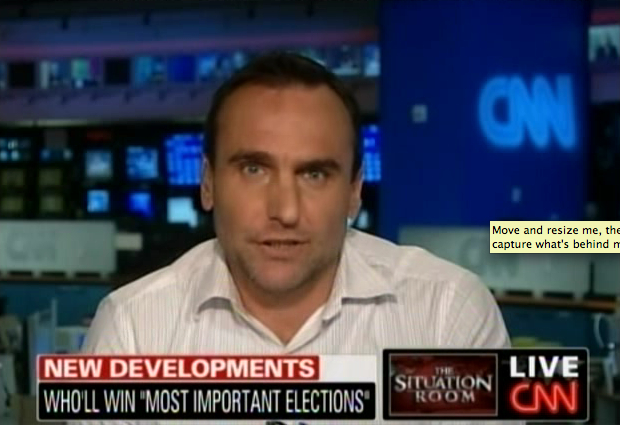TSR: "This could just be the beginning of the true political warfare in Iraq."

Length: 3:25
LARGE (47.6 MB) ----- SMALL (4.2 MB)
Wolf Blitzer talks to Michael about the Iraqi elections as well as what faces US troops as they are more deeply involved in Afghanistan, long known as "the graveyard of empires."
WOLF BLITZER: Let's head over to CNN's Michael Ware. He has been covering the war in Iraq since day one. He's joining us from our studios in New York.
They had elections over the weekend. By all accounts, they went relatively smoothly, with Iraqi military forces taking the lead, U.S. forces playing a secondary role.
Does this open the way for President Obama to accelerate, accelerate a withdrawal of U.S. combat forces from Iraq? He hopes to do so over 16 months, Michael. But might he be able to do it even more quickly?
MICHAEL WARE, CNN CORRESPONDENT: Well, if he wants to terrify his U.S. military commanders and put the fear of God throughout the Iraq population, he certainly can accelerate the pace of his withdrawal.
Let's not muck around here. The relative success so far of this Iraqi provincial election -- now, remember, they're voting state by state, they're not voting for the national government -- is clearly a success. But let's not go patting ourselves on the back anytime soon.
I would have bet last month's salary that this would have been a successful election, in terms of security and the absence of attacks. In fact, I would argue that most of this year, most likely, will see an ongoing downward trend in attacks. Why?
Because it's in none of the parties' interests right now to promote attacks. All of the political factions are competing in the political process, waiting to see what they get out of the game. But, remember, to be in this game, you must have your own militia or paramilitary force. That's what's backing every player here.
Now, in the provincial elections, we hear the secular parties have done well, and so has the party of Prime Minister Nouri al-Maliki. If that's true, let's see what the big loser, the Islamic party, the ISCI party, which was created in Tehran, does about the loss of its share in the provinces.
This could just be the beginning of the true political warfare in Iraq -- Wolf.
BLITZER: So it's by no means a done deal in Iraq.
But what about Afghanistan? He's got to make a major decision. You saw the article Fareed Zakaria is writing in the new issue of "Newsweek" magazine about potentially Afghanistan becoming Obama's Vietnam. And we all remember the connotations of that.
He's going to be moving troops from Iraq to Afghanistan. What do you think about that decision?
WARE: Well, I mean, it's between a rock and a hard place, isn't it. And in Afghanistan, that's literally what it can be.
Put it this way. The president is obviously a much braver man than I. To hang the bulk of his foreign policy credibility, to hang that cap on Afghanistan, is a daring maneuver. Afghanistan is the graveyard of empires. No one has ever won in Afghanistan.
Now, pouring U.S. troops into those mountains, this is the end of the Himalayas, remember -- is not going to solve anything quick. Even 30,000 extra troops will disappear rapidly along that border. The mountains will just swallow them up. So it's going to require a lot more than just shifting troops from one theater of warfare to another.
Let's see whether the special envoy, Richard Holbrooke, and President Obama, and the newly sworn Secretary of State can step up to the plate here. It's going to be miracle-making that's demanded of them -- Wolf.
BLITZER: Michael Ware. The challenge is enormous.
All right, Michael, thanks very much.
